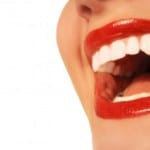 Many people snore without really thinking about it, but if you snore on a regular basis, gasp for breath or regularly wake feeling like you’ve had a restless night, this could be a sign of sleep apnoea. Sleep apnoea is a sleep disorder that causes interrupted breathing. It can potentially be very serious and should therefore be carefully managed. If you suffer with sleepless nights, we are here to help – call today to book an appointment.
Many people snore without really thinking about it, but if you snore on a regular basis, gasp for breath or regularly wake feeling like you’ve had a restless night, this could be a sign of sleep apnoea. Sleep apnoea is a sleep disorder that causes interrupted breathing. It can potentially be very serious and should therefore be carefully managed. If you suffer with sleepless nights, we are here to help – call today to book an appointment.
What exactly is sleep apnoea?
Sleep apnoea is a sleep disorder that occurs when the airway becomes obstructed for longer than 10 seconds. This results in interrupted breathing, shortness of breath and gasping for air while you sleep. Loud snoring is often a common symptom.
Sleep apnoea can range from mild to severe. In the most serious cases, it can even be fatal.
What causes sleep apnoea?
The main risk factors for sleep apnoea include:
- being overweight
- having a large neck circumference
- family history
- smoking
- drinking alcohol
Treating sleep apnoea
There are various treatment options when it comes to sleep apnoea, including lifestyle changes such as losing weight, doing more exercise, giving up smoking and avoiding excessive alcohol consumption, especially at night. In more severe cases, additional treatment may be required and this can involve taking medication and using a breathing mask to ensure constant air flow while you sleep. This form of treatment is known as continuous positive airway pressure (CPAP). At City Dental, we also recommend the use of custom-made mandibular advancement devices, which are suited to those with mild or moderate symptoms. These devices hold the jaw in a forward position, keeping the airway open and facilitating oxygen flow.














